GoPro Hero launched alongside flagship Hero 13 Black – and it could be one of the best 4K action cams for beginners
The tiny Hero is GoPro's cheapest and smallest-ever 4K camera with a screen
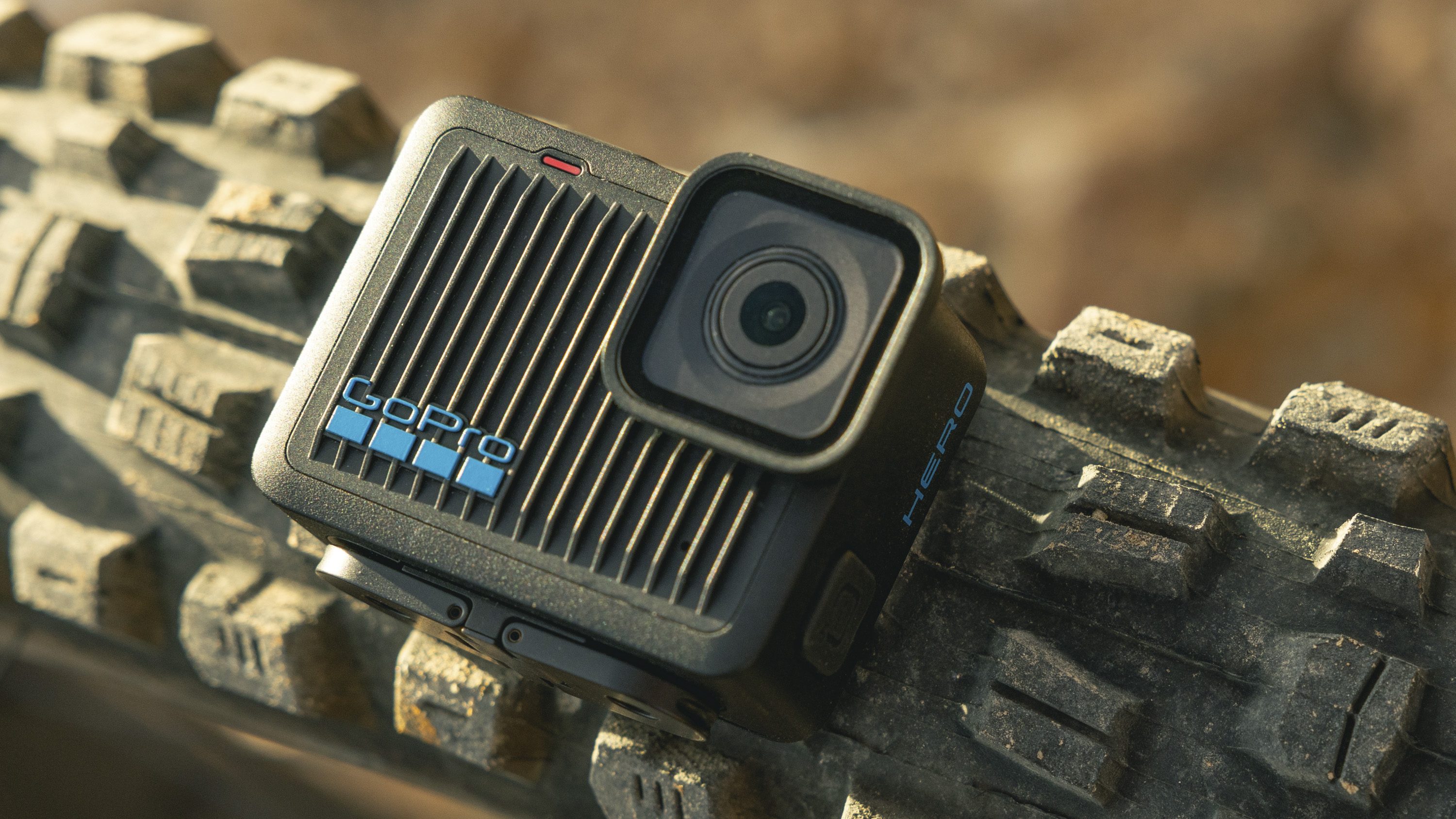
It’s September, which means two virtual certainties in tech: we’re getting new iPhones and the latest GoPros. True to form, the action camera king has launched its latest flagship, the Hero 13 Black, plus an-all new beginner-friendly model, simply called the Hero.
The all-new model, the Hero, is GoPro's smallest-ever 4K action camera with a screen, and is designed to be as simple and affordable as they come. The entry-level model is is due to hit the shelves on September 22 and is also GoPro's cheapest-ever action camera, with a $199 / £199.99 / AU$349.95 list price.
Coming in at twice the price of the Hero is the flagship Hero 13 Black, which starts at $399 / £399.99 / AU$649.95, while the Creator Edition costs $599 / £599.99 / AU$979.95. It'll be available sooner than the Hero, with a September 10 on-sale date. You can read our first impressions of the new flagship model in our hands-on GoPro Hero 13 Black review.
GoPro has also unveiled a host of new accessories for the Hero 13 Black, notably new HB-Series lenses that include a Macro Lens Mod ($129.99 / £129.99 / AU$249.95), which overcomes the close-focusing limitations that action cameras suffer from, and a compelling Anamorphic Lens Mod ($129.99 / £129.99 / AU$219.95) for de-squeezed letterboxed cinematic footage.
These latest Lens Mods join the Ultra Wide Lens Mod ($99.99 / £99.99 / AU$169.95), as well as a new ND Filter 4-pack ($69.99 / £69.99 / AU$119.95), and when attached these are all automatically detected by the Hero 13 Black for ease of use – that’s a first.
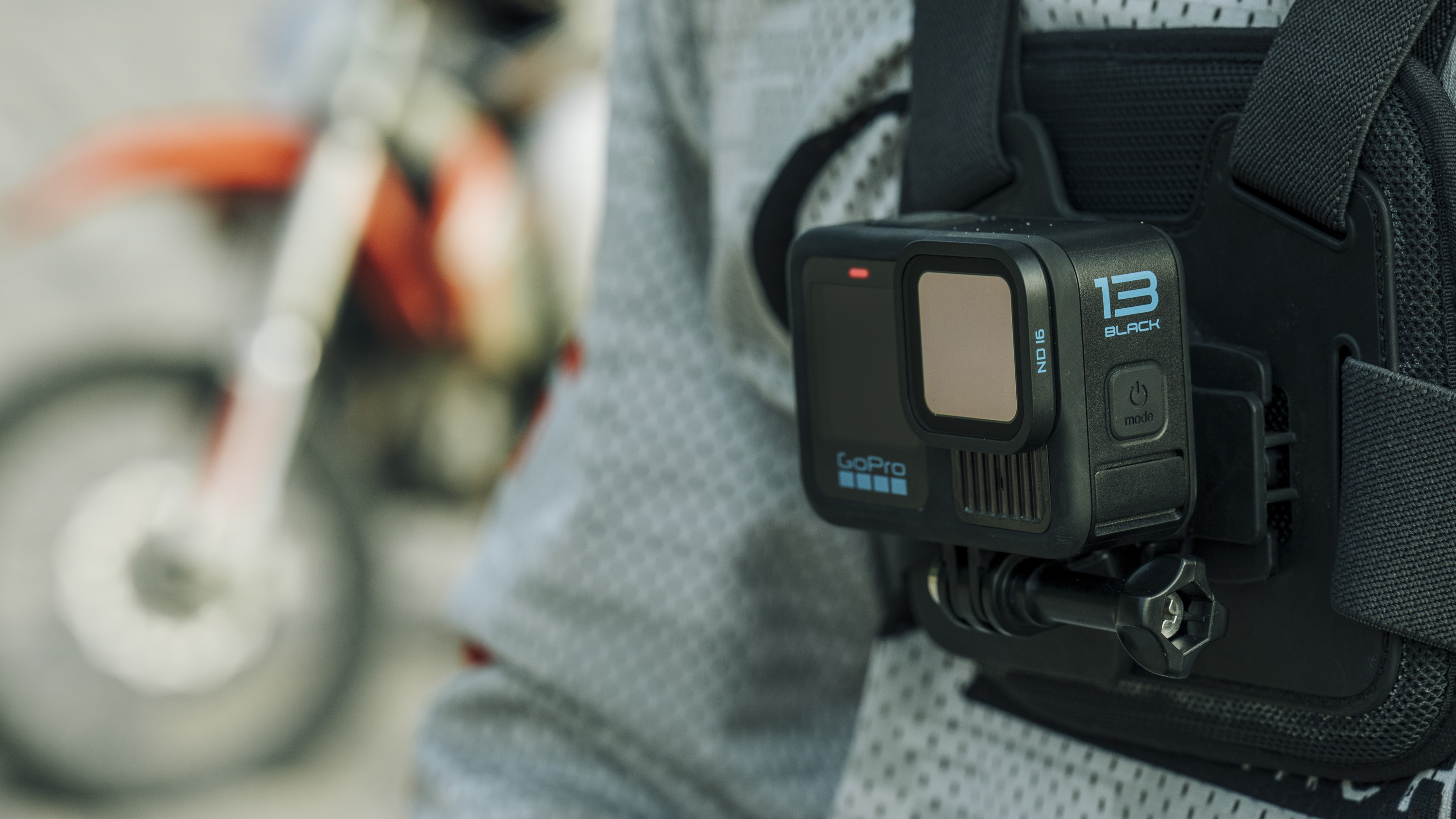
GoPro Hero 13 Black: the most refined action camera system yet
The top-line features of the Hero 13 Black are much the same as before: an 8:7 aspect ratio sensor with video resolution up to 5.3K, industry-leading HyperSmooth stabilization and waterproofing up to 33ft / 10m.
So how exactly is GoPro hoping it can fend off fierce competition from DJI and its Osmo Action 4 (which it's rumored will be replaced by the Osmo Action 5 Pro soon) and the excellent Insta360 Ace Pro (which also has a rumored Ace Pro 2 successor in the pipeline)? By elevating its mature system of accessories, it seems, as well as by taking a leaf out of the competition's books.
Get daily insight, inspiration and deals in your inbox
Sign up for breaking news, reviews, opinion, top tech deals, and more.
In a first for GoPro, the Hero 13 Black features convenient magnetic mounting, a feature that's also utilized by the new ’Contacto’ on-the-go charging accessory ($79.99 / £79.99 / AU$139.95). The redesigned built-in battery is also a higher-capacity 1,900mAh unit, capable of shooting 5.3K video for up to 1.5 hours and Full HD 1080p videos for around 2.5 hours.
We also get the new series of Lens Mods, all of which are auto-detected by the Hero 13 Black thanks to a new mount design. For example, the anamorphic lens produces an ultra-wide letterboxed perspective that is de-squeezed by the camera, with signature lens flares, which are a popular effect with filmmakers.
The previous Max Mod lens from the Hero 12 Black can be used with the Hero 13 Black, albeit without auto-detection. However, the new HB-series lenses are not backwards compatible.
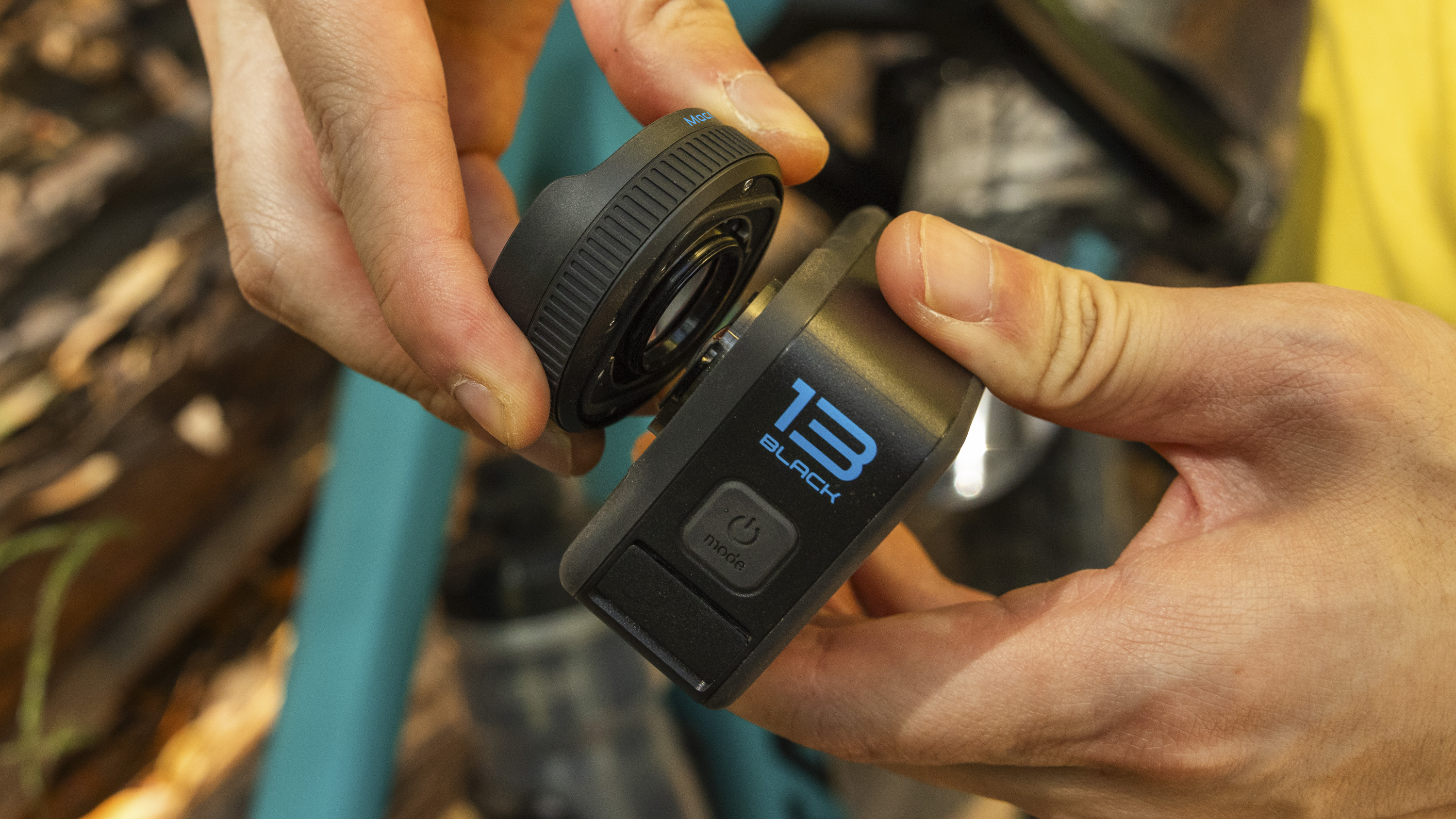
And while we’re not getting a new sensor or higher-resolution video, which will disappoint those with their heart set on a 8K GoPro that's also better in low light, video footage can be more cinematic. That’s because 5.3K video can be shot at up to 120fps for 4x slow-motion recording, as well as in superior 10-bit color depth, with an option for Hybrid Log Gamma (HLG) HDR video to minimize lost detail in highlights and shadows.
GoPro has also responded to the calls for the return of GPS – which was a disappointing omission from the Hero 12 Black. Not only can the Hero 13 Black tag your location, but through the Quik app Performance Stickers can be added to embed info such as speed, altitude and G-force into video clips. This is an open-source feature and compatible with third-party media management apps.
Despite there not being a lot that's new, the Hero 13 Black feels like a much more compelling package for serious creators than the Hero 12 Black.
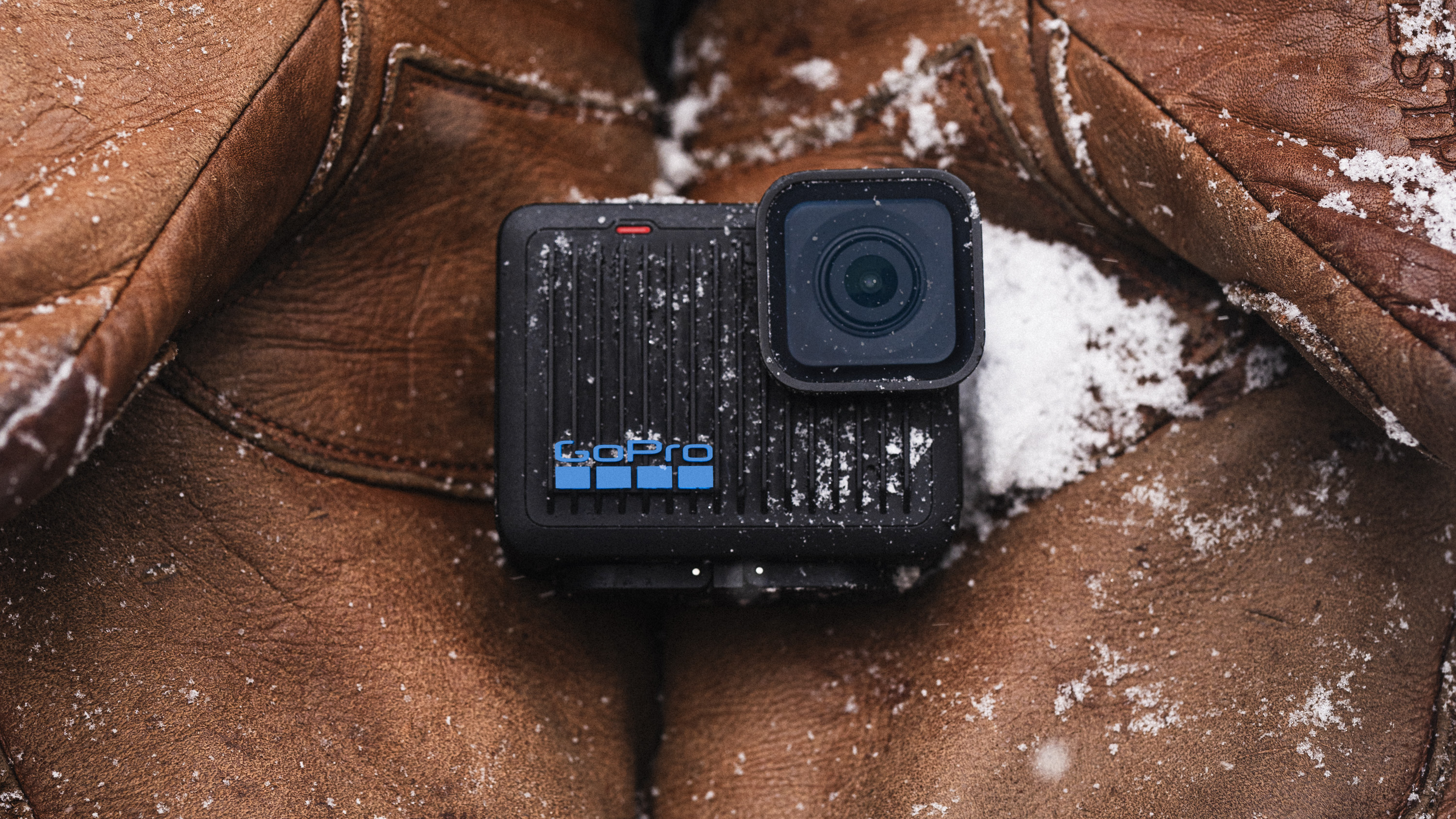
GoPro Hero: the new beginner action camera to beat?
While the Hero 13 Black is steadily becoming a sophisticated cinematic tool for serious filmmakers, there’s a larger portion of users, especially beginners, who simply want to power up their action camera and shoot without all the fuss. It’s these people who could be interested in the Hero instead.
The Hero is GoPro’s smallest and lightest 4K action camera with a screen yet, weighing just 3oz / 86g. It measures 56.6mm x 47.7mm x 29.4mm (WxHxD), meaning that overall it’s around 40% smaller than the Hero 13 Black.
Being half the price of the GoPro Hero 13 Black, the Hero is naturally a simpler device. It has a smaller sensor than the Hero 13 Black, delivering 4K video up to 30fps with a run time of up to 100 minutes, plus 2.7K video at 60fps and 12MP photos.
However, it has a slightly wider field of view, with 165-degree coverage compared to the Hero 13 Black's 156-degree FOV, so you won't really need a lens adaptor like the Ultra-Wide Lens Mod to fit more into your shots.
Beyond the specs, it’s the simplicity of the Hero, which is waterproof up to 16ft / 5m, that appeals. You can choose from three shooting options – Video (up to 4K), Slo-Mo (2.7K 60fps) and Photo – and the camera does the rest.
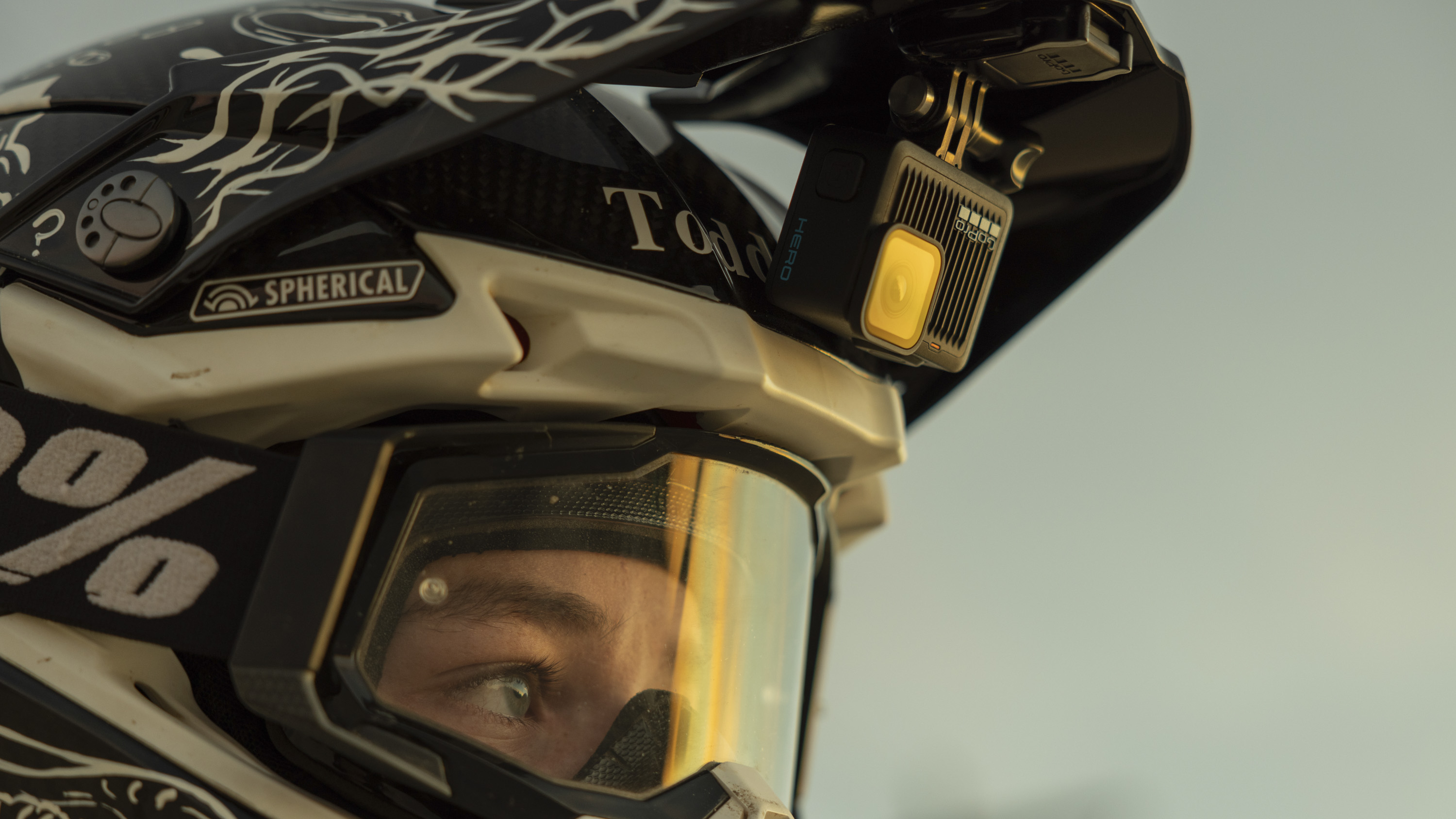
Being a simple, low-cost model, the Hero lacks a key feature: GoPro's HyperSmooth stabilization. That means your action videos will look pretty shaky when played back in-camera, but you can apply stabilization afterwards using the GoPro Quik app (as you can to footage from the Insta360 Go 3S using the Insta360 Studio app). From personal experience, the Quik app goes a long way to eliminating the shakes.
The Insta360 Go 3S is another tiny action camera, but a different prospect to the Hero. GoPro's camera is much cheaper and has a built-in screen, but much simpler shooting modes. The Go 3S on the other hand is a modular camera, smaller in its screen-less form, then it loses its waterproofing when inserted to the Action Pod which has a screen, and which is very similar in size to the Hero.
If you just want to get up and running quickly without fiddling around with camera settings, and want a more compact option than the Hero 13 Black, then the Hero looks like a solid choice, though we haven't had the chance to try out the new model yet.
We'll be sharing more GoPro content soon, including more opinions and in-depth reviews.
You might also like

Tim is the Cameras editor at TechRadar. He has enjoyed more than 15 years in the photo video industry with most of those in the world of tech journalism. During his time as Deputy Technical Editor with Amateur Photographer, as a freelancer and consequently editor at Tech Radar, Tim has developed a deeply technical knowledge and practical experience with cameras, educating others through news, reviews and features. He’s also worked in video production for Studio 44 with clients including Canon, and volunteers his spare time to consult a non-profit, diverse stories team based in Nairobi. Tim is curious, a keen creative, avid footballer and runner, and moderate flat white drinker who has lived in Kenya and believes we have much to enjoy and learn from each other.